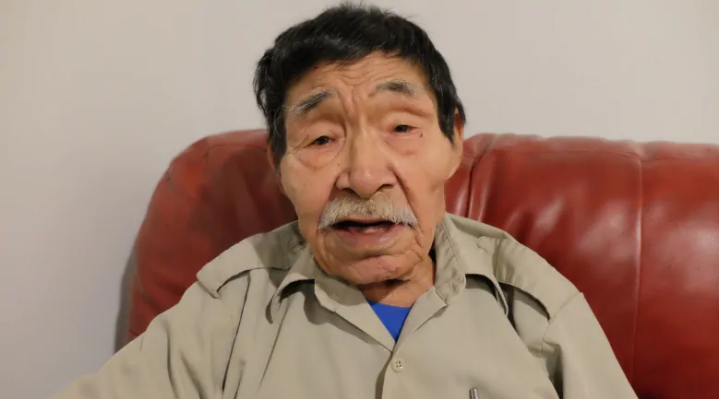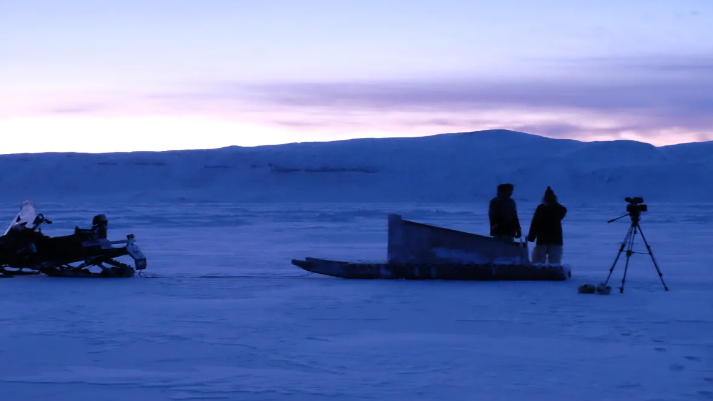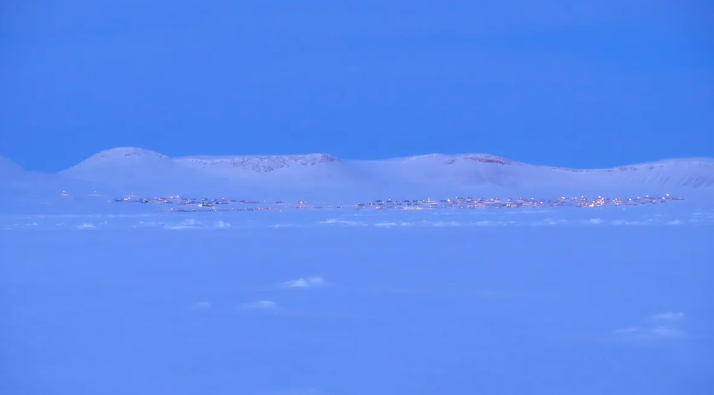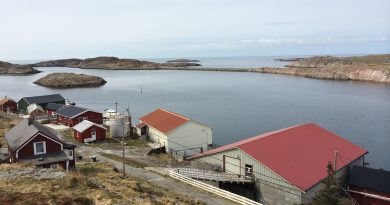Elder in Canada’s eastern Arctic remembers Inuit language weather words rarely used today

Tommy Tatatoapik says changes in lifestyle and use of English contribute to language loss
Does the sky look a little bit like seal intestines today? If there are some wispy white clouds, then it might look like that, says an elder from Arctic Bay, Nunavut.
Tommy Tatatoapik said an Inuktitut word for partly cloudy, which is rarely used today, was inspired by what the membrane on the inside of a seal’s stomach and intestines looks like.
The term is “qiaqaqtuq.”
“The inner part of the intestines have this cover, like a membrane, that is the ‘qiaq’,” the 82-year-old Tatatoapik said in Inuktitut. He said because the membrane has some clear and some cloudy parts, he believes the term comes from that.
CBC spoke with Tatatoapik during a visit to Arctic Bay in January 2019. Tatatoapik was born in Clyde River, Nunavut, around 1937 and has lived in Arctic Bay since 1946.
He said he grew up hunting and talking about hunting, but some of the words he used are no longer in daily use, including weather words.
In addition to partly cloudy, Tatatoapik said he uses the word silaqqiqtuq for clear skies and nuvujajuq for cloudy, which are still used today.

All the tools men hunted with had specific names, including each part of the qamutik, or sled. He said sleds are still built the same way — that knowledge has been passed on — but the words are no longer practiced.
“I now realize that the items that we use … in our homes, and items we see at the stores are contributing to losing our language,” he said.
The loss of language is caused in part by changes in the way of life and the increased use of English, he said.
“We can say some of the terms in English and that is how we are referring to the items with the terminology today.”
Words for snow
Just as useful as knowing what the sky is doing for those going hunting, are the terms for what’s happening on the ground or the sea ice.
“When you travel on the ice by dog teams you can feel these conditions,” Tatatoapik said.
He said the specific words help him relay the conditions to other hunters when he comes back from a trip on the land.

There’s a type of snow that appears on the sea ice that hasn’t fallen from the sky or blown there, but formed from frost, he said.
“When there is snow on top of the ice for the first time during the fall season and the ice just had formed, with bush-like formations and frost is shiny on top of the ice, I would say that it now has ‘kannguti’,” Tatatoapik said.
Kannguti is the root word of Kanngutiqaqtuq; it’s different from aqilluqqaqaqtuq which means soft deep snow that has fallen from the sky on the ice.
Both are referring to snow, but he said those terms are not being used anymore.
Today hunters that still go out on the land use a different term.
“When they tell stories about their travel, they don’t say anything about the condition of the ice, but they say aputiqaliqtuq [there is snow now] referring to the snow in winter.”
– Written by Sara Frizzell, with files from Lucy Burke
Related stories from around the North:
Canada: Inuit leaders applaud UN move to designate International Decade of Indigenous Languages, Eye on the Arctic
Finland: Budget cuts threaten international Sámi language cooperation, Yle News
Norway: Walt Disney Animation Studios to release Saami-language version of “Frozen 2”, Eye on the Arctic
Sweden: Calls for more Indigenous protection in Sweden on Sami national day, Radio Sweden
United States: Indigenous leaders at UN meeting push for decade dedicated to language revitalization, CBC News



